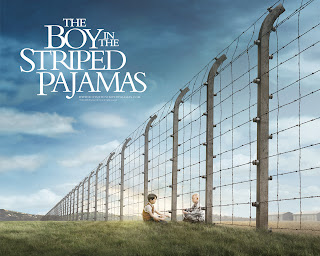It feels horrible to have the name "Hitler" and to have a picture with a swastika on my blog, but I recently saw a documentary that was incredibly powerful, and I wanted to write about it and encourage others to see it.
It is called Hitler's Children, available for streaming on Netflix, and the winner of multiple awards. As we know, Hitler himself did not have any biological children. This film consists of interviews of descendants of those within his inner circle. It is a ground-breaking film in that we see that, similarly to the descendants of Jewish families who were affected by the horrors of the Holocaust, the families of the Nazi war criminals live their own brand of hell, living with the surname of those responsible.
Amon Goeth, Heinrich Himmler, Rudolf Hoess, Hans Frank, and Hermann Goering. These are some of the most famous names associated with the atrocities of that period in history. What would it be like to be related to these men? How do you establish a separate identity apart from the bloody legacy they left behind?
Coming to terms with their infamous relatives has not been easy for any of the people who are interviewed. The common denominator is guilt, because everyone wants to love and honor their parents. In the case of Niklas Frank, the son of Hans Frank, Hitler's chief legal counsel, the answer is--you don't. He has completely denounced both of his parents and his 4 older siblings--all now deceased--who denied their father's actions.
Others who participate in the documentary are the daughter of Amon Goeth (the sadistic officer portrayed by Ralph Fiennes in Schindler's List,) Heinrich Himmler's grand-niece Katrin Himmler, Rudolf Hoess's grandson Rainer, and Hermann Goering's niece Bettina.
The family lies that all of these people grew up hearing are chilling. Many of them have done their own research to find out the truth. They have considered changing their names, and often try to disassociate themselves with their homeland. They've written books, visited schools, and some have even opted for sterilization in order to end the family line.
Two parts of the film made the most impact on me: when Monika Goeth described the way she felt seeing the portrayal of her father in Schindler's List; and when Rainer Hoess spoke to a group of teenagers at Auschwitz, many of whom had lost relatives at the hands of his grandfather. (The incredible film The Boy in the Striped Pajamas is obviously loosely based on the Hoess family.)
Thankfully, none of the people in the film make any excuses for what their relatives did. On the contrary. They have tried their best to live good, decent lives and to prove that such evil is not hereditary. As Katrin Himmler explains, to believe those traits can be passed down through the generations is to align yourself with Nazi ideology about race and genetics.
As time separates us more and more from what happened in Germany during World War II, it becomes easy to forget it as a crucial moment in history. I personally believe that every school child should be taught about this time period as a way to ensure that it doesn't happen again. (Although we know that it is happening today in some parts of the world, to some degree.)
If you feel your child is old enough and mature enough to handle the subject, I recommend watching (together with your child) The Boy in the Striped Pajamas (PG-13) and then Hitler's Children (unrated, but probably a PG because of language.) Neither film shows graphic images although there is some violence in Pajamas. Both are available for streaming on Netflix. The Boy in the Striped Pajamas is fictional, based on the book of the same name, but powerful. The documentary is mostly in German with English subtitles.
Some helpful links:
Official Website for the documentary, Hitler's Children.
.jpg)

No comments:
Post a Comment